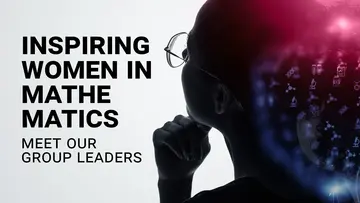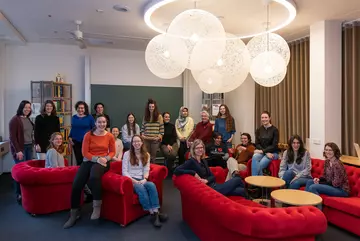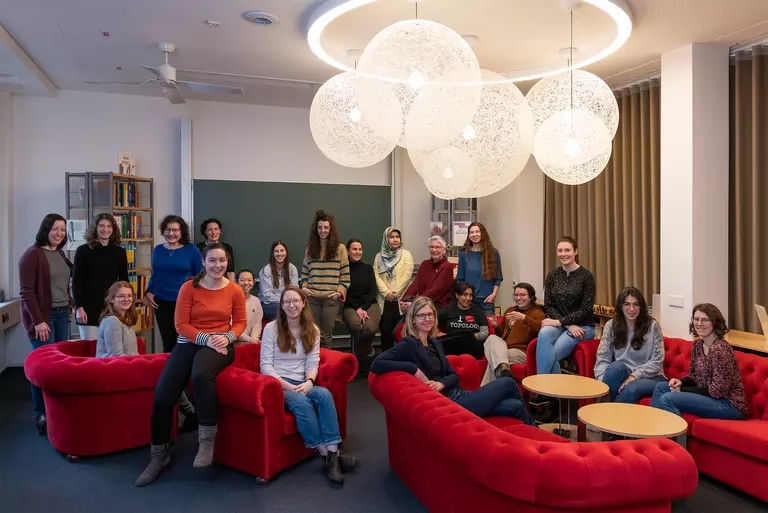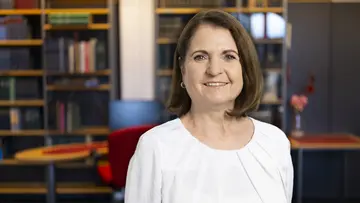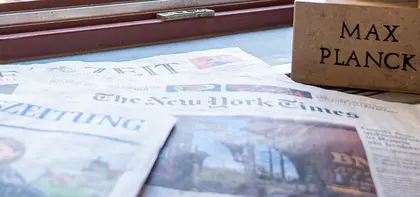
Raffaella Mulas Shares Her Perspective on International Women’s Day
Published Mar 8, 2023
Happy International Women's Day! Today is a celebration of all the powerful, intelligent, and wonderful women around the world and their great contributions to society. As Marie Curie once said, “Nothing in life is to be feared, it is only to be understood.”
In honor of this special day, we would like to share an interview with one of our outstanding female scientists, Raffaella Mulas. She shares some personal thoughts and reflects on the impact of women in science. Join us in celebrating the achievements of women everywhere!
Interview with Raffaella Mulas
How did you get into mathematics?
When I was a kid, I wanted to be either a rock star or a mathematician. I made my final decision at the age of seven, and I have no regrets.
What motivates you in your work?
Doing research in mathematics is simultaneously a fun, creative and relaxing process – that is what motivates me!
What do you like the most about your research area?
I mainly work on the spectral theory of graphs and hypergraphs, and I love that fact that this allows me to work on very different topics. For instance, I can work on extremal combinatorics, as well as on networks of genetic expression, all within the same research area, and I can collaborate with researchers from very different backgrounds. That is amazing to me.
Did you ever doubt your abilities as a scientist? Why? How did you handle these feelings?
Yes, it's an irrational feeling. When I worry about not being able to do something in the future, I remind myself that I've had the same thoughts in the past and they turned out to be unwarranted. I also find it extremely helpful to talk about these feelings with colleagues. It's refreshing to hear that even some of the best mathematicians have these doubts about their abilities.
How does your family view your career choice?
My dad would have liked me to dedicate my life to sports. I swam competitively for ten years, and also competed in water polo and karate. I traveled to many competitions and even won the Italian Karate Championships in my category. However, as I said, I decided at the age of seven that I wanted to be a mathematician, and my dad could not change my mind! He still jokes about it when people ask him if he is happy about my career choice.
Research usually goes hand-in-hand with teaching; how important is scientific mentorship for you?
I love teaching, and I really enjoyed the freedom that I have had here at MPI MiS, with the choice of content and format for all courses that I delivered. I have also really appreciated supervising my first PhD student and postdocs here at the institute.
Besides mathematics, do you have any other passions that make you happy?
Swimming and swing dancing!
What advice would you give to young researchers starting out at the institute?
You have a unique opportunity to work in a beautiful, diverse and stimulating environment - take advantage of it! Make the most of your time here! Be social and try to chat and interact with all the research groups in this institute as well as visitors. You may have to get out of your comfort zone to do this, but it can be so rewarding!
What advice would you give to young women in science?
Studying and working in a male-dominated environment can be tough. However, there are many female mentoring networks that can help compensate for this imbalance, even within the Max Planck Society. For example, I am a member of the Elisabeth-Schiemann-Kolleg, which is a wonderful mentoring network for young female group leaders in the natural sciences from all over the world. This has been a great source of support for me over the past few years, and a safe place to share gender and work-related issues.
What are you looking forward to in the future?
Perhaps lowering my Erdős number.
What else should we know about you?
I have a mathematical nickname, Graphaella!
Scientific Contact
Editorial Contact
Related Content
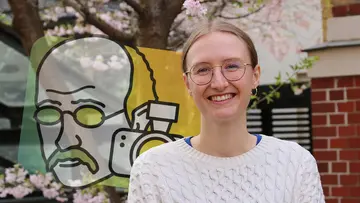
Elke Neuhaus Elke Neuhaus
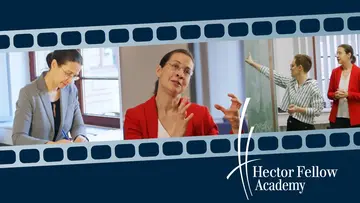
What School Doesn’t Teach Us About Mathematics What School Doesn’t Teach Us About Mathematics
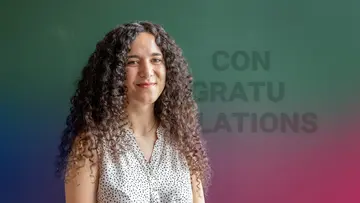
Young Talent Award for Laura Casabella Young Talent Award for Laura Casabella
